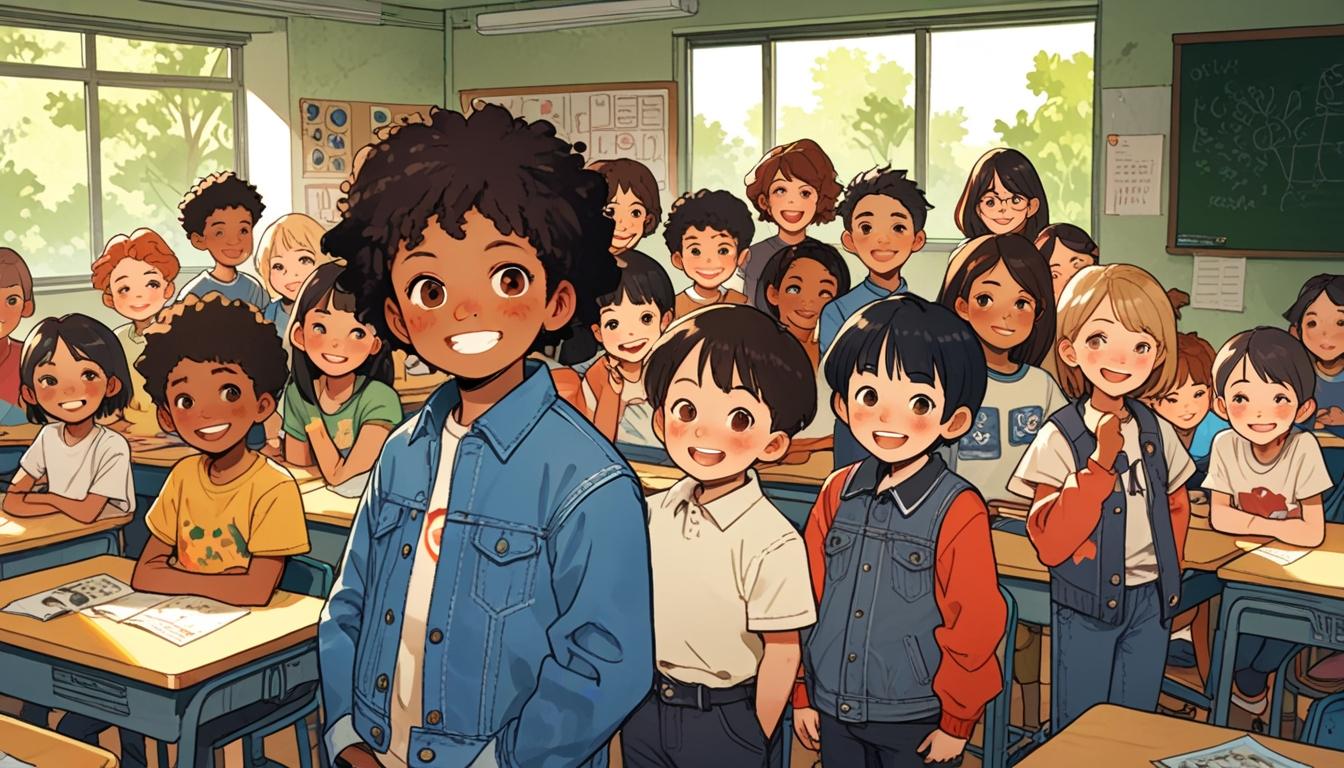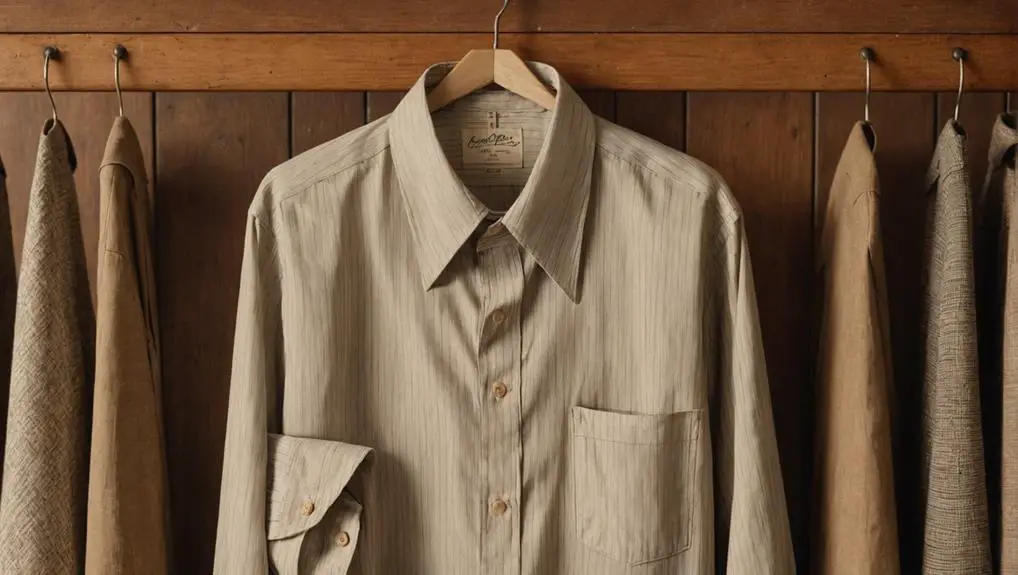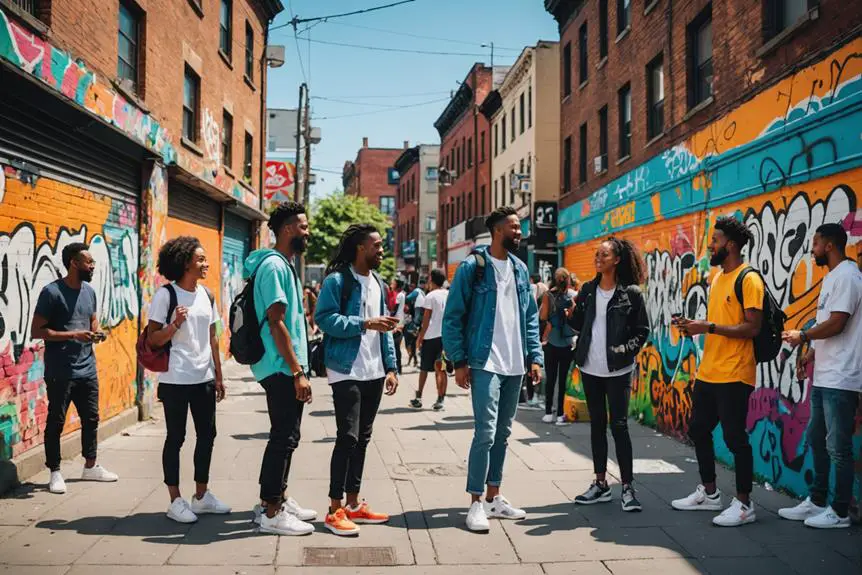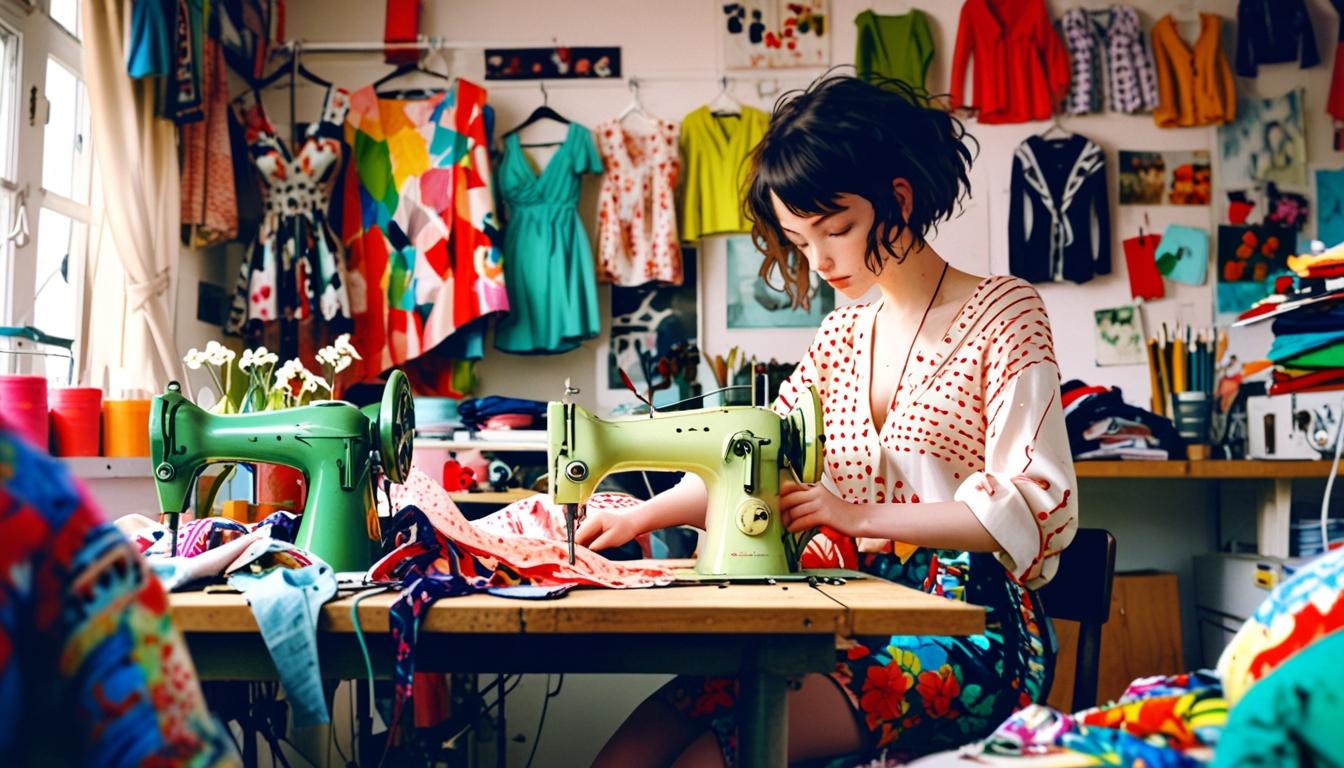Kudro Kids, a new children’s denim brand, emphasizes sustainable practices and ethical labor, addressing the environmental impact of fast fashion in kids’ clothing.
The fashion industry has witnessed a significant shift towards sustainability, particularly in the denim sector, where conventional practices often conflict with environmental responsibility. One such initiative is Kudro Kids, a children’s gender-neutral denim brand founded by fashion designer Rebecca Ford, who identified the detrimental effects of fast fashion during her tenure at Li & Fung and Abercrombie Kids.
Denim production has evolved over the years, moving away from its original cotton-only composition to more common cotton-poly blends. This shift has contributed to lower prices, such as Old Navy’s denim offerings starting at around $20. However, this affordability comes at a cost, as it often involves the use of toxic dyes, reduced recyclability, and shorter lifespans for the garments.
Recognizing the need for greater sustainability in kids’ clothing, Ford stated, “There are not many kids’ brands just focused on denim,” in comments to Sourcing Journal. She highlighted the importance of creating durable and sustainable clothing that addresses the needs of neurodivergent children, providing a comfortable “hand feel” that is often overlooked in mass-produced fast fashion items.
Kudro Kids targets the market with a direct-to-consumer model that emphasizes the use of sustainable materials as well as ethical labor practices. The jeans are made using fabrics sourced from an old denim mill in China, known as Advance Denim, and dyed with CleanKore technology, which significantly reduces harmful chemical usage. The brand’s offerings include sizes 2 to 12 with three different fits: straight, skinny, and wide leg, retailing between $125 and $134.
Additionally, Kudro Kids is associated with the Fair Trade Certified Network and is a member of 1% for the Planet, ensuring that a portion of sales is devoted to environmental conservation efforts. To encourage the circular economy and sustainability further, the brand offers a Loved+Re-Loved program where customers can return their jeans for a discount on future purchases. This initiative aims to promote the sharing and recycling of clothing items among families and friends, easing the challenges posed by rapid growth stages in children.
The overall environmental impact of denim production is a pressing concern, with estimates suggesting that creating a single pair of jeans consumes approximately 7,600 liters of water, and growing 1 kilogram of cotton requires around 10,000 liters. Such statistics underscore the necessity for consumers to consider eco-friendly brands and thrift options to mitigate waste and conserve invaluable water resources.
Source: Noah Wire Services





https://cr-v.su/forums/index.php?autocom=gallery&req=si&img=4017
https://hrv-club.ru/forums/index.php?autocom=gallery&req=si&img=6992
http://wish-club.ru/forums/index.php?autocom=gallery&req=si&img=5361
https://mazda-demio.ru/forums/index.php?autocom=gallery&req=si&img=6390
https://mazda-demio.ru/forums/index.php?autocom=gallery&req=si&img=6390
http://wish-club.ru/forums/index.php?autocom=gallery&req=si&img=5421
http://wish-club.ru/forums/index.php?autocom=gallery&req=si&img=5427
https://vitz.ru/forums/index.php?autocom=gallery&req=si&img=4842
https://hrv-club.ru/forums/index.php?autocom=gallery&req=si&img=6921
https://hrv-club.ru/forums/index.php?autocom=gallery&req=si&img=6967
http://wish-club.ru/forums/index.php?autocom=gallery&req=si&img=5304
http://toyota-porte.ru/forums/index.php?autocom=gallery&req=si&img=3248
http://terios2.ru/forums/index.php?autocom=gallery&req=si&img=4577
https://honda-fit.ru/forums/index.php?autocom=gallery&req=si&img=7072
https://myteana.ru/forums/index.php?autocom=gallery&req=si&img=6870
http://passo.su/forums/index.php?autocom=gallery&req=si&img=4315
https://mazda-demio.ru/forums/index.php?autocom=gallery&req=si&img=6629
https://honda-fit.ru/forums/index.php?autocom=gallery&req=si&img=7319
http://terios2.ru/forums/index.php?autocom=gallery&req=si&img=4595
https://myteana.ru/forums/index.php?autocom=gallery&req=si&img=6673
http://wish-club.ru/forums/index.php?autocom=gallery&req=si&img=5317
https://vitz.ru/forums/index.php?autocom=gallery&req=si&img=4888
https://mazda-demio.ru/forums/index.php?autocom=gallery&req=si&img=6435
https://vitz.ru/forums/index.php?autocom=gallery&req=si&img=4906
http://wish-club.ru/forums/index.php?autocom=gallery&req=si&img=5319
https://myteana.ru/forums/index.php?autocom=gallery&req=si&img=6710
???? ????????? – ?? ????? ????????? ??????? ????? ????????? ? mp3 ? ??????? ?????? https://shorturl.fm/VlgV6
???? ??????????? – ???????? ??????? ????? ?? ??????? ? ??????? ????????? https://shorturl.fm/a48pc
???? ??????????? – ???? ??????? ????? ? ??????? ?????? https://shorturl.fm/ShWMX
Ramil’ – ????? ??????? ????? ? mp3 ? ??????? ?????? https://shorturl.fm/w41lE
????? ???? & ??????? – ???? ??????? ? ??????? ?????? https://shorturl.fm/rFM5g
Anivar – ??????? ??????? ??????? ? ??????? ?????? https://shorturl.fm/G6FCh
???? ?????????? – ??? ??? ?????? ??????? ? ??????? ?????? https://shorturl.fm/FdPVZ
??-?? – ???? (Chi-Li Remix) ??????? ? ??????? ?????? https://shorturl.fm/GxukU
????? & ????? – ?? ??? ???? ??????? ????? ?? ??????? ? ??????? ????????? https://shorturl.fm/vTzyt
http://atora.ru/blogs/interesnye-statyi/foo-fighters-energiya-roka-i-dukh-nezavisimosti1.php
https://honda-fit.ru/forums/index.php?autocom=gallery&req=si&img=7116
http://toyota-porte.ru/forums/index.php?autocom=gallery&req=si&img=3314
http://toyota-porte.ru/forums/index.php?autocom=gallery&req=si&img=3363
https://honda-fit.ru/forums/index.php?autocom=gallery&req=si&img=7119
https://vitz.ru/forums/index.php?autocom=gallery&req=si&img=4990
https://mazda-demio.ru/forums/index.php?autocom=gallery&req=si&img=6358
https://honda-fit.ru/forums/index.php?autocom=gallery&req=si&img=7167
https://myteana.ru/forums/index.php?autocom=gallery&req=si&img=6804
http://wish-club.ru/forums/index.php?autocom=gallery&req=si&img=5283
http://wish-club.ru/forums/index.php?autocom=gallery&req=si&img=5267
https://mazda-demio.ru/forums/index.php?autocom=gallery&req=si&img=6351
https://honda-fit.ru/forums/index.php?autocom=gallery&req=si&img=7030
https://myteana.ru/forums/index.php?autocom=gallery&req=si&img=6777
http://wish-club.ru/forums/index.php?autocom=gallery&req=si&img=5285
?????? ?????? – ????? ??????? mp3 ? ??????? ?????? https://shorturl.fm/nd29U
?????? ??????? – ? ? ?? ??????? ????? ? ??????? ????????? https://shorturl.fm/mL3Oo
???????? ????? – ??????? ????? ??????? mp3 ? ??????? ????????? https://shorturl.fm/2WApg
Serpo – ??????? ?????? ?? ??????? ????? ? ??????? ?????? https://shorturl.fm/n2JdR
Shoo – ????? ??????? ????? ? mp3 ? ??????? ?????? https://shorturl.fm/82vM7
???????? – ???????? ??????? ????????? mp3 ? ??????? ?????? https://shorturl.fm/91mPP
Pegas – ? ????? ?? ?? ??????? ????????? ? ??????? ?????? https://shorturl.fm/IueZm
??? ??????? – ??????? ??????? ????? ? ??????? ????????? https://shorturl.fm/EiNUd
???????? ????? feat. ???????? & ??? & NEMIGA – ???????? ??????? ????? ? ??????? ??????
https://allmp3.pro/2680-laskovaja-lilija-feat-shkolnik-bau-nemiga-karamel.html
????? & ????? ????????? – ?? ????? ??????? ????? ? ??????? ??????
https://allmp3.pro/2499-picca-elena-temnikova-po-krajam.html
?????? ??????? – ??? ?? ??????? ??????? ??????? ????? ? ??????? ??????
https://allmp3.pro/2786-sergej-odincov-nam-do-razluki-polchasa.html
??????? – ???????, ??? ?????? ??????? ????? ? ??????? ??????
https://allmp3.pro/3146-marakesh-tancuem-moja-ljubov.html
???? ??????? – ???????(DJ Masta 2009 Mix) ??????? ????? ? ??????? ??????
https://allmp3.pro/3179-jurij-shatunov-vspomnidj-masta-2009-mix.html
Mili – ?? ? ????? ??????? ????? ? ??????? ??????
https://allmp3.pro/3317-mili-my-s-toboj.html
Balanceadora
Aparatos de balanceo: fundamental para el rendimiento estable y eficiente de las maquinas.
En el entorno de la ciencia contemporanea, donde la efectividad y la estabilidad del dispositivo son de maxima trascendencia, los sistemas de balanceo juegan un tarea esencial. Estos equipos adaptados estan disenados para equilibrar y asegurar elementos dinamicas, ya sea en equipamiento industrial, automoviles de traslado o incluso en equipos domesticos.
Para los profesionales en conservacion de aparatos y los especialistas, manejar con sistemas de calibracion es fundamental para promover el rendimiento estable y seguro de cualquier aparato rotativo. Gracias a estas opciones modernas avanzadas, es posible disminuir notablemente las sacudidas, el ruido y la carga sobre los soportes, aumentando la longevidad de elementos valiosos.
Asimismo importante es el rol que desempenan los aparatos de balanceo en la soporte al comprador. El apoyo tecnico y el mantenimiento constante aplicando estos sistemas posibilitan dar prestaciones de alta excelencia, aumentando la contento de los consumidores.
Para los responsables de negocios, la financiamiento en unidades de equilibrado y detectores puede ser esencial para incrementar la rendimiento y productividad de sus sistemas. Esto es principalmente relevante para los emprendedores que manejan modestas y intermedias organizaciones, donde cada aspecto es relevante.
Tambien, los equipos de calibracion tienen una gran aplicacion en el ambito de la fiabilidad y el gestion de excelencia. Permiten encontrar eventuales defectos, reduciendo intervenciones caras y perjuicios a los dispositivos. Ademas, los resultados generados de estos aparatos pueden aplicarse para mejorar procedimientos y aumentar la reconocimiento en plataformas de busqueda.
Las areas de uso de los dispositivos de ajuste abarcan variadas areas, desde la manufactura de transporte personal hasta el seguimiento ecologico. No influye si se refiere de extensas elaboraciones productivas o modestos talleres domesticos, los sistemas de balanceo son fundamentales para garantizar un funcionamiento productivo y libre de interrupciones.
siteniz çok güzel devasa bilgilendirme var arad???m her?ey burada mevcut çok te?ekkür ederim
siteniz harika ba?ar?lar?n?z?n devam?n? dilerim arad???m her?ey bu sitede
siteniz çok güzel devasa bilgilendirme var arad???m her?ey burada mevcut çok te?ekkür ederim
siteniz çok güzel devasa bilgilendirme var arad???m her?ey burada mevcut çok te?ekkür ederim
Clear, concise, and effective. ? Watch Live Tv online in HD. Stream breaking news, sports, and top shows anytime, anywhere with fast and reliable live streaming.